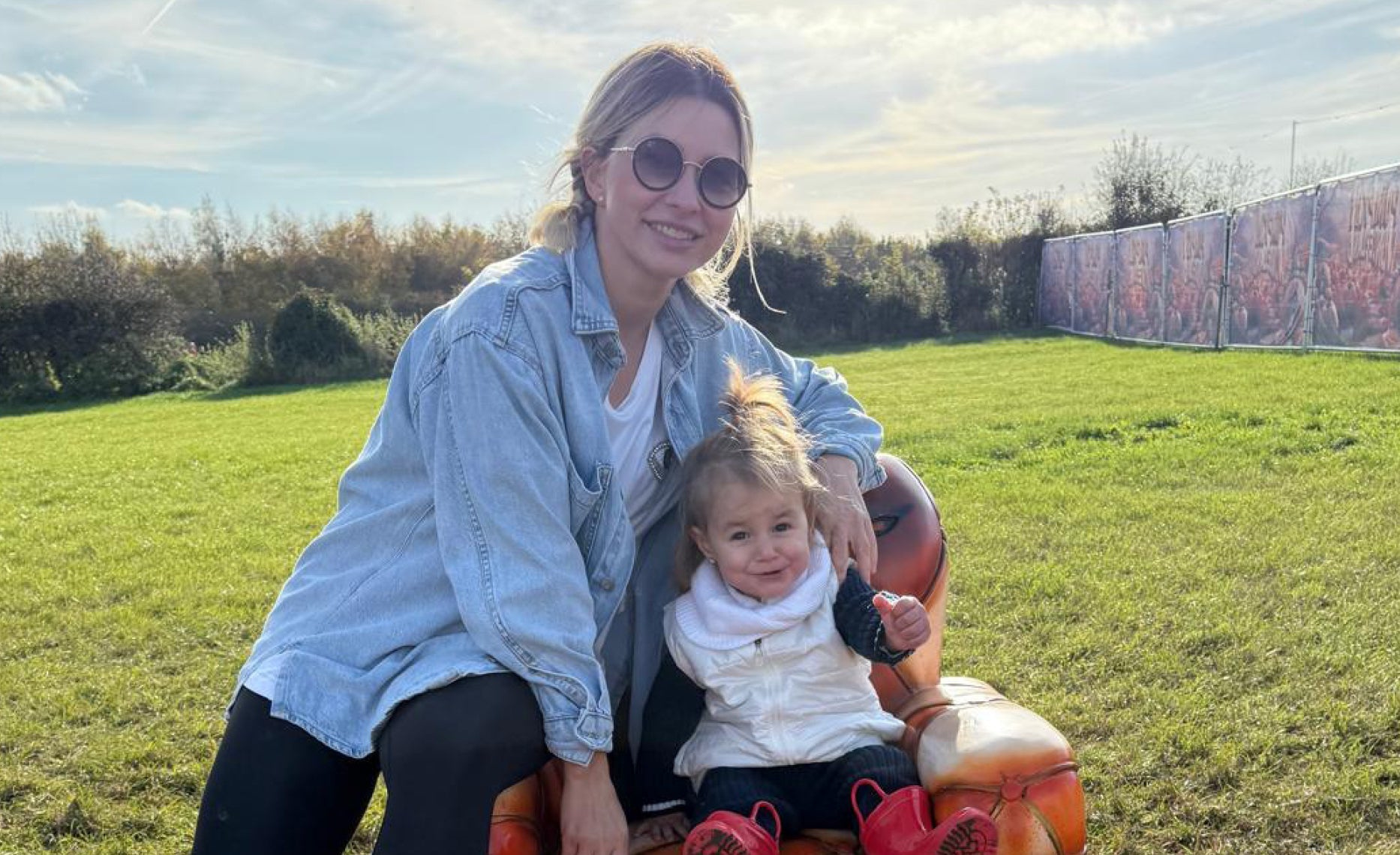Week 19 of Pregnancy | How Big is Your Baby at 19 Weeks?
Share Options
- Bambino Mio
- 20 / 07 / 2023

Inside this Article:
- At 19 weeks of pregnancy, your baby is the size of a mango!
- Baby’s using moisturiser already!
- Your baby’s hair is starting to grow
- Laying down more fat stores
- Those pearly whites are also in development
- How you’re feeling at 19 weeks pregnant
- Staying healthy at 19 weeks pregnant
- Things to think about at 19 weeks pregnant
- Citations and References
Pregnancy is a time of huge change for you, your body and your life. Our guide will help you through this amazing time, letting you know what to expect at each stage and, most excitingly, what your baby is up to each week.
At 19 weeks of pregnancy, your baby is the size of a mango!
You’re almost at the halfway point in your pregnancy and by 19 weeks, your baby has grown from a poppy seed into a mango. This means they’re 16cm (6.25in) from their crown to their rump and 23cm (9in) from crown to heel.
They also weigh around 260g (9.4oz). Before you know it (well, by 27 weeks of pregnancy…) your baby will have reached the kilo mark!
Baby’s using moisturiser already!
Your baby’s skin is producing a thick, creamy white coating called vernix caseosa (1). This coating has a lot of very important functions:
- Vernix acts as a lubricant to ease your baby’s passage through the birth canal
- It forms a waterproof layer over your baby’s skin to protect it during their long immersion in your amniotic fluid
- It helps to prevent infection, both inside the womb and in the first few days after birth
- Vernix helps your baby to regulate their body temperature
- It also promotes wound healing and keeps your baby’s skin supple as they adjust to life on the outside
Your baby’s hair is starting to grow
Your baby’s head hair will soon put in an appearance as the hair canals on their scalp (2) are fully formed and so your baby’s hair will become visible by 21 weeks of pregnancy.
Laying down more fat stores
Although your baby’s been depositing white fat for a couple of weeks now, they’ve started making brown fat as well (3). White fat stores energy, while brown fat helps your baby to generate body heat.
Those pearly whites are also in development
You probably won’t see them until your baby’s around six months old, but rest assured that those baby teeth are working hard on growing (4) while they’re tucked away in those gums.
How you’re feeling at 19 weeks pregnant
Nausea and vomiting are probably a thing of the past by now, but you’ll still be feeling some heartburn, a bit of dizziness and nasal stuffiness and possibly some food cravings.
You might also be noticing stabbing or stretching pains around your lower abdomen and groin. They can take you by surprise and cause quite a shock, but they’re almost certainly round ligament pains (5), a common pregnancy symptom.
Round ligament pains
While they’re very unpleasant, these pains are caused by nothing more sinister than the stretching of the ligaments around your growing uterus. If you cough, laugh, sneeze or change position suddenly, you might feel a sudden sharp pain, although they can also happen for no apparent reason (other than the growing and stretching, obviously).
Forgetfulness
You might notice that you’re a little more absent minded than usual, or that it’s hard for you to concentrate. So-called pregnancy brain (6) is believed to affect up to 80% of pregnant women and we’re not totally sure what causes it, although realistically, being pregnant is probably enough of a reason!
Staying healthy at 19 weeks pregnant
Hopefully you’re having a good second trimester and all those annoying pregnancy symptoms are taking turns rather than piling in all at once.
Carry on with your healthy pregnancy diet (7) and drink lots of water as these two habits are a great basis for health at any time of your life, as is a bit of exercise (8).
Coping with round ligament pain
There’s no way to prevent this pain, as your round ligaments have to stretch and grow with your womb. However, you can reduce its frequency and severity by:
- Changing position slowly - no sudden movements
- Wearing a belly support belt
- Using a pregnancy pillow at night
- Keeping a good posture as much as possible
- Doing some gentle stretching
- Flexing or bending “towards” the pain
If you’re feeling absent minded
It could be tiredness, it could be pregnancy hormones, it could be a combination, but you can help yourself to cope with and reduce pregnancy brain by:
- Getting some extra sleep when you can
- Taking steps to reduce stress
- Eating well and watching your blood sugar and hydration levels
Look after your gums and teeth
Yours and your baby’s! Healthy eating is important for your teeth and those tiny teeth your baby’s working on. A diet that’s low in sugar will help to prevent teeth decay for you while a calcium and vitamin D (9) rich diet will provide your baby with the nutrients they need to build strong teeth.
Things to think about at 19 weeks pregnant
Work on your posture, because as your baby bump grows it can cause lower back pain, so strengthening your core muscles (10) can help to reduce this.
If you haven’t seen your dentist so far, make an appointment now so you know your teeth and gums are in good shape. You may be entitled to free dental care while you’re pregnant (11).
Find out more about your 20-week ultrasound scan (12) and talk with your partner about whether you want to find out your baby’s sex and what you’ll do if you need further tests.
Citations and References
(1) National Institutes of Health (NIH). National Library of Medicine. ‘Unravelling the Mystery of Vernix Caseosa.’ 2008. Web. www.ncbi.nlm.nih.gov/pmc/articles/PMC2763724
(2) National Institutes of Health (NIH). National Library of Medicine. ‘Preparing the Hair Follicle Canal for Hair Shaft Emergence.’ 2020. Web. www.ncbi.nlm.nih.gov/pmc/articles/PMC8016696
(3) National Institutes of Health (NIH). National Library of Medicine. ‘Adipose Tissue and Fetal Programming.’ 2012. Web. https://pubmed.ncbi.nlm.nih.gov/22402988
(4) Johns Hopkins Medicine. ‘Anatomy and Development of the Mouth and Teeth.’ Web. https://www.hopkinsmedicine.org/health/wellness-and-prevention/anatomy-and-development-of-the-mouth-and-teeth
(5) National Health Service (NHS). ‘Round Ligament Pain in Pregnancy.’ 2019. Web. www.royalberkshire.nhs.uk/media/wtai0ety/round-ligament-pain-in-pregnancy_oct19.pdf
(6) Healthline. ‘Is Pregnancy Brain Real?’ 2020. Web. www.healthline.com/health/pregnancy/is-pregnancy-brain-real
(7) National Health Service (NHS). ‘Keeping Well in Pregnancy. Eating Well in Pregnancy.’ 2023. Web. www.nhs.uk/pregnancy/keeping-well/have-a-healthy-diet
(8) National Health Service (NHS). Keeping Well in Pregnancy: Exercise in Pregnancy.’ 2023. Web. www.nhs.uk/pregnancy/keeping-well/exercise
(9) National Health Service (NHS). ‘Keeping Well in Pregnancy: Vitamins, Supplements and Nutrition in Pregnancy.’ 2020. Web. www.nhs.uk/pregnancy/keeping-well/vitamins-Supplements-and-nutrition
(10) National Health Service (NHS). ‘Common Symptoms in Pregnancy. Back Pain in Pregnancy.’ 2021. Web. www.nhs.uk/pregnancy/related-conditions/common-symptoms/back-pain
(11) National Health Service (NHS). ‘Get Help With Dental Costs.’ 2020. Web. www.nhs.uk/nhs-services/dentists/dental-costs/get-help-with-dental-costs
(12) National Health Service (NHS). ‘Your Pregnancy Care. 20-week Screening Scan.’ 2021. Web. www.nhs.uk/pregnancy/your-pregnancy-care/20-week-scan
Pregnancy by Week, What to Expect







































